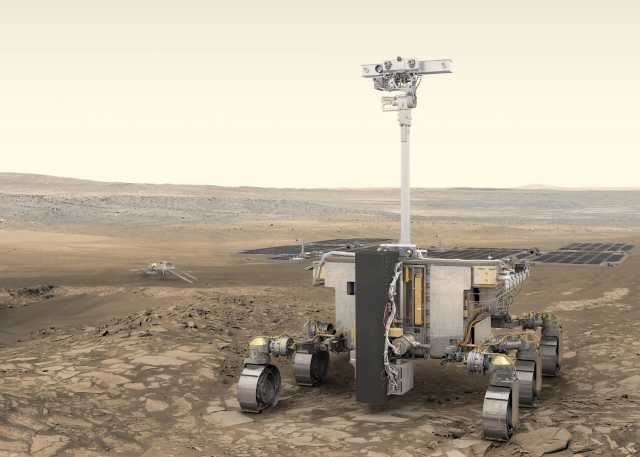Another joint space program for Russia and the West, apparently, will be suspended due to the military operation in Ukraine.
The European Space Agency (ESA) has issued a statement "on cooperation with Russia following a meeting with member states on February 28, 2022." According to him, the organization, which includes representatives of 22 countries, must fully comply with the sanctions imposed against Moscow against the background of the military operation in Ukraine. Therefore, the launch of a joint ExoMars program with Roscosmos this year seems "unlikely," the ESA noted.
"The ESA Director General will analyze all options and prepare an official decision on further actions by ESA member States. We continue to monitor the situation," the statement said.
The European Agency also commented on the decision of Roscosmos to suspend cooperation on launches from the Kourou cosmodrome in French Guiana and withdraw its specialists from there with the words "we have taken note".
"We regret the tragic events taking place in Ukraine, the crisis that has turned into a war in recent days," said the agency's Director General, Josef Aschbacher. "ESA makes many difficult decisions taking into account the sanctions imposed by the governments of our participating countries."
At the same time, on February 25, Ashkhaber, speaking about joint programs with Russia, stressed : "Despite the conflict, civil cooperation in space remains a link between us." The day before, the head of the Russian space agency Dmitry Rogozin wanted to hold talks with his European colleagues and discuss the current situation, but they refused.
The purpose of the ExoMars program is to search for organic molecules or signs of life on the Red Planet. The first stage was implemented in 2016, the launch took place at the Baikonur cosmodrome. However, this part of the mission was only partially successful: the Schiaparelli descent module crashed during landing due to premature shutdown of the braking engines. Another component of the program is the Trace Gas Orbiter Orbiter, which in the spring of 2018 successfully began exploring the atmosphere of Mars.
For the launch of the ExoMars-2022 mission scheduled for this September (which has already been postponed several times), the Russian side has pledged to provide a Proton-M launch vehicle, a descent vehicle and a Kazachok landing platform. In 2023, after landing on the Red Planet, the autonomous six-wheeled rover Rosalind Franklin was supposed to join two rovers, a NASA lander and a Chinese spacecraft already on the surface of Mars. Kazachok, in turn, would continue to operate as an automatic station.
The launch window appears only once every 26 months— which means that unforeseen postponements lead to long delays.

